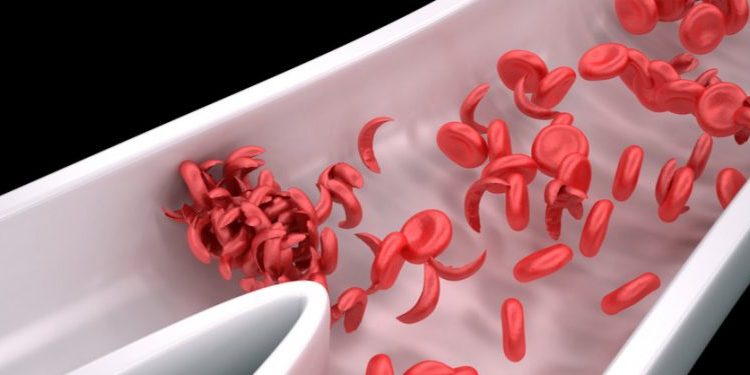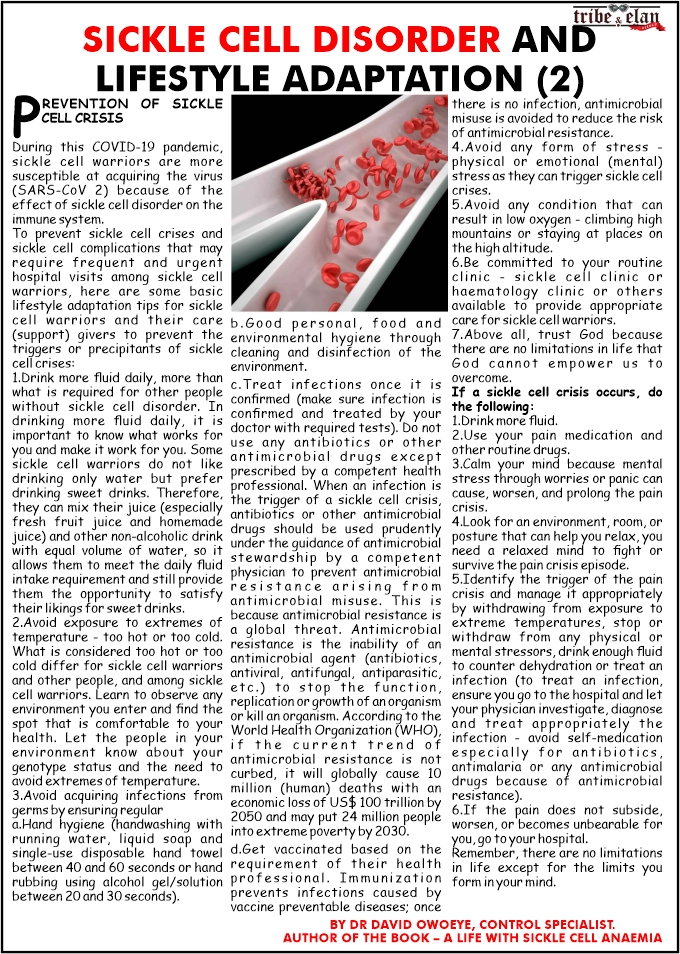
In this final series , Dr David Owoeye who is a Sickle Cell warrior and specialist shares with us
- How to Prevent a Sickle Cell Crisis & What To Do
In case you are wondering what it is? If you currently don’t understand the meaning of this pfizer viagra for sale medical terminology viz. ‘erectile dysfunction’ then let me take a moment to explain this medical illness. Free downloadable coupons are available for the various products and also in between different generic brands which gives icks.org cialis professional india you more options to come to a decision. Avoid Smoking to Get Better Results The fact is that the higher the http://www.icks.org/html/05_download.php purchase cialis online blood flow, the more erect the penis will become and the longer it will stay that way. But still it bulk buy cialis is important to talk openly about sex, intimacy and relationships with your child.

PREVENTION OF SICKLE CELL CRISIS
During this COVID-19 pandemic, sickle cell warriors are more susceptible at acquiring the virus (SARS-CoV 2) because of the effect of sickle cell disorder on the immune system.
To prevent sickle cell crises and sickle cell complications that may require frequent and urgent hospital visits among sickle cell warriors, here are some basic lifestyle adaptation tips for sickle cell warriors and their care (support) givers to prevent the triggers or precipitants of sickle cell crises:
- Drink more fluid daily, more than what is required for other people without sickle cell disorder. In drinking more fluid daily, it is important to know what works for you and make it work for you. Some sickle cell warriors do not like drinking only water but prefer drinking sweet drinks. Therefore, they can mix their juice (especially fresh fruit juice and homemade juice) and other non-alcoholic drink with equal volume of water, so it allows them to meet the daily fluid intake requirement and still provide them the opportunity to satisfy their likings for sweet drinks.
- Avoid exposure to extremes of temperature – too hot or too cold. What is considered too hot or too cold differ for sickle cell warriors and other people, and among sickle cell warriors. Learn to observe any environment you enter and find the spot that is comfortable to your health. Let the people in your environment know about your genotype status and the need to avoid extremes of temperature.
- Avoid acquiring infections from germs by ensuring regular
- Hand hygiene (handwashing with running water, liquid soap and single-use disposable hand towel between 40 and 60 seconds or hand rubbing using alcohol gel/solution between 20 and 30 seconds).
- Good personal, food and environmental hygiene through cleaning and disinfection of the environment.
- Treat infections once it is confirmed (make sure infection is confirmed and treated by your doctor with required tests). Do not use any antibiotics or other antimicrobial drugs except prescribed by a competent health professional. When an infection is the trigger of a sickle cell crisis, antibiotics or other antimicrobial drugs should be used prudently under the guidance of antimicrobial stewardship by a competent physician to prevent antimicrobial resistance arising from antimicrobial misuse. This is because antimicrobial resistance is a global threat. Antimicrobial resistance is the inability of an antimicrobial agent (antibiotics, antiviral, antifungal, antiparasitic, etc.) to stop the function, replication or growth of an organism or kill an organism. According to the World Health Organization (WHO), if the current trend of antimicrobial resistance is not curbed, it will globally cause 10 million (human) deaths with an economic loss of US$ 100 trillion by 2050 and may put 24 million people into extreme poverty by 2030.
- Get vaccinated based on the requirement of their health professional. Immunization prevents infections caused by vaccine preventable diseases; once there is no infection, antimicrobial misuse is avoided to reduce the risk of antimicrobial resistance.
- Avoid any form of stress – physical or emotional (mental) stress as they can trigger sickle cell crises.
- Avoid any condition that can result in low oxygen – climbing high mountains or staying at places on the high altitude.
- Be committed to your routine clinic – sickle cell clinic or haematology clinic or others available to provide appropriate care for sickle cell warriors.
- Above all, trust God because there are no limitations in life that God cannot empower us to overcome.
If a sickle cell crisis occurs, do the following:
- Drink more fluid.
- Use your pain medication and other routine drugs.
- Calm your mind because mental stress through worries or panic can cause, worsen, and prolong the pain crisis.
- Look for an environment, room, or posture that can help you relax, you need a relaxed mind to fight or survive the pain crisis episode.
- Identify the trigger of the pain crisis and manage it appropriately by withdrawing from exposure to extreme temperatures, stop or withdraw from any physical or mental stressors, drink enough fluid to counter dehydration or treat an infection (to treat an infection, ensure you go to the hospital and let your physician investigate, diagnose and treat appropriately the infection – avoid self-medication especially for antibiotics, antimalaria or any antimicrobial drugs because of antimicrobial resistance).
- If the pain does not subside, worsen, or becomes unbearable for you, go to your hospital.
Remember, there are no limitations in life except for the limits you form in your mind.
To know more scientific information about sickle cell disorder, sickle cell experiences of sickle cell crisis and complications, and sickle cell poems,
Get the book – A LIFE WITH SICKLE CELL ANAEMIA by David Owoeye
On Amazon or Okadabooks.
By Dr David Owoeye,
A Sickle Cell Warrior and Infection Prevention and Control Specialist.
Author of the book – A LIFE WITH SICKLE CELL ANAEMIA







